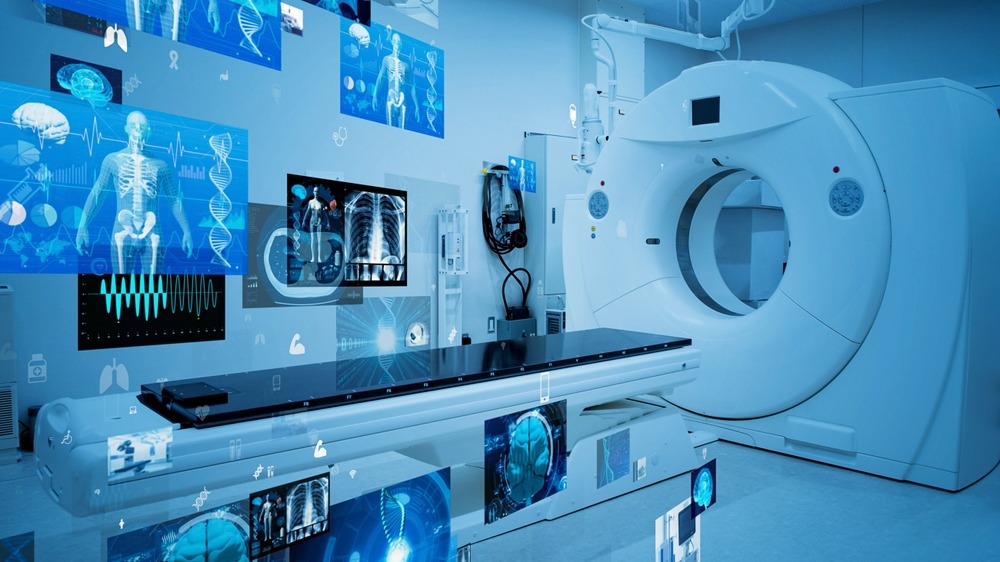In the realm of medical imaging, Two main techniques stand out: magnetic resonance imaging (MRI) and computed tomography (CT) scans. Both are invaluable tools in modern medicine, providing deeper insights into the inner workings of the body. However, they serve different purposes and are chosen based on specific medical needs. Understanding these differences is important for health-conscious individuals seeking the most appropriate diagnostic method.
MRI vs. CT Scan: Decoding the Differences
Specifically, MRI and CT scans use different technologies to capture images of the body’s internal organs. MRI uses strong magnets and radio waves to create detailed images, especially of soft tissues such as muscles, tendons and brain tissue while CT scans use X-rays to create internal organs, bones, blood vessels and a quick and gain insight.
1. Detail and Clarity
MRI is known for its ability to produce high resolution images, and is particularly useful for soft tissues, brain diseases, and spinal problems such as MRI’s superior soft tissue contrast in looking for spinal cord injuries or brain tumors.
In contrast, CT imaging is particularly effective in evaluating complex bone fractures, imaging the lungs and Chest, and detecting cancer. Because of its rapidity, CT is often the go-to in emergency situations, allowing rapid diagnosis to inform immediate treatment decisions.
2. Exposure to Radiation
The most important difference between MRI and CT scan is the use of radiation. MRI does not expose patients to radiation, making it a safe technique that can be used repeatedly, especially in vulnerable populations such as pregnant women and children but CT images contain X-rays, and it can be a concern with repeated exposure.
3. Duration and Comfort
An MRI usually takes a long time, usually 30 to 60 minutes, and the patient stands still in a narrow enclosed tube, which can be difficult for those with claustrophobia CT scans are much faster, usually completed in minutes in a few cases, and less restrictive is, is it is very comfortable for patients who may experience anxiety during the length of the procedure.
When Do You Need an MRI or CT Scan?
The choice between MRI and CT scan depends on the specific medical condition and type of information needed by the health care provider.
- MRI is preferred for:
- Detailed views of the soft tissues, joints, and spine.
- Evaluation of brain diseases such as epilepsy, epilepsy, and stroke.
- Screening for ligament and tendon injuries, and certain types of cancer.
- CT is preferred for:
- Rapid evaluation of patients in emergency situations.
- Bone injuries detection, thoracic and chest imaging, and cancer diagnosis.
- They should be surgically planned and guided in a number of physical anatomic examinations.
MRI and CT Scan: Statistical Insights
The use of MRI and CT scans has increased dramatically over the years. According to a study published in the Journal of the American Medical Association in 2021, the use of CT scans has increased approximately 4.4% annually, reflecting the important role they play in critical care and research. MRI usage has also grown, particularly in neurology and orthopedics, highlighting its importance in detailed and non-invasive imaging.
Conclusion
Understanding the difference between an MRI and a CT scan is essential to making informed decisions about your health. While both imaging modalities have their unique strengths and applications, the choice of use should be guided by the specific clinical situation and medical needs. At Ecotown Diagnostics, we are committed to providing top-notch CT scan in Bangalore to provide patients with the best possible care. Let’s make sure you get what’s possible . As you navigate your health journey, consider the benefits and limitations of each imaging type. How can we best use this technology for a healthier tomorrow?
FAQs
1. Which is safer, MRI or CT scan?
MRI is generally considered safe because it is not sensitive to ionizing radiation. However, patient-specific factors must be considered, and decisions must be made by a healthcare professional.
2. Can I choose between an MRI and a CT scan?
The choice of MRI and CT scans depends on the medical condition being considered and should be based on the need for diagnosis by the health care provider.
3. How long do MRI and CT scan results take?
Results can vary, but CT scan results are generally more readily available than MRI results due to faster scan times.
4. Are there any preparation requirements for MRI or CT scans?
Yes, both may require specific preparation. For example, you may need to fast for a certain period of time before the scan or to remove metal objects for an MRI.
5. How often can I safely get a CT scan?
It depends on your medical condition and needs. Because of the use of radiation, CT scanning should be done judiciously and the volume collected should be minimized.








